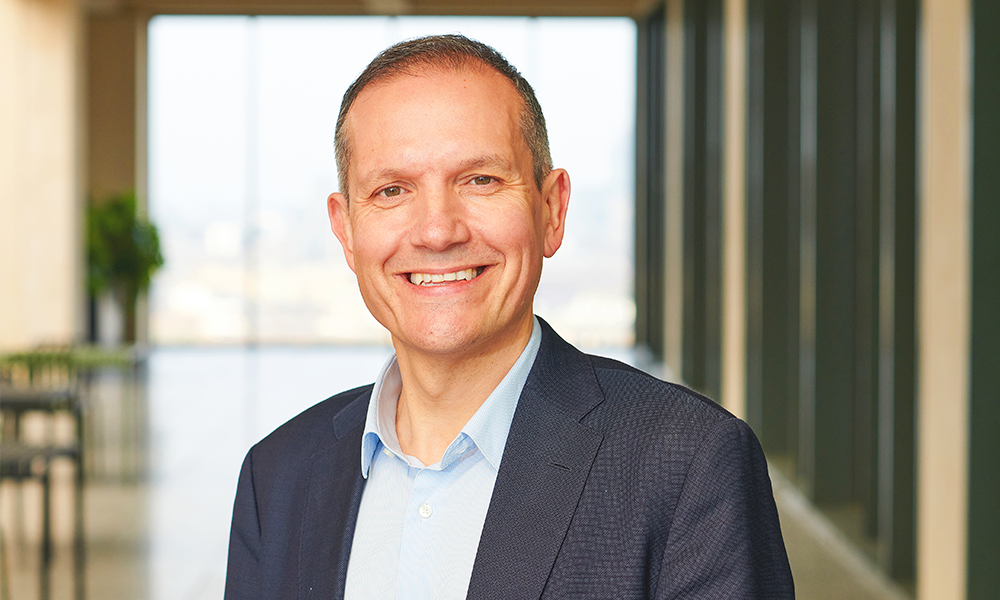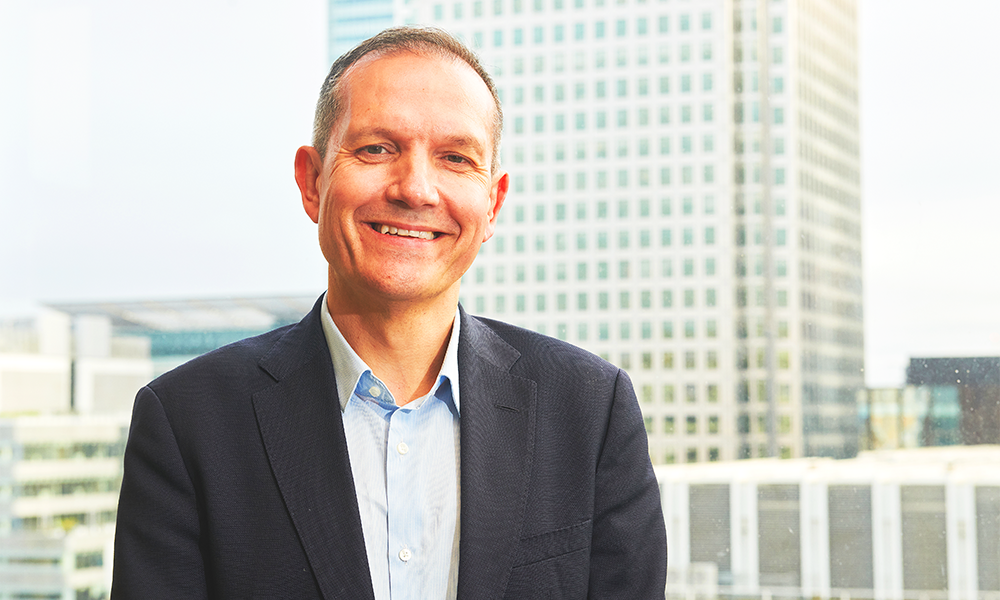Cabot Square-based global leader talks about conversational chatbot technology and ChatGPT

Subscribe to our free Wharf Whispers newsletter here
“Wharf Life newspaper was founded by Archant, a publishing company, to serve the area around Canary Wharf,” states ChatGPT 3.5, confidently, when asked who created this paper.
It sounds plausible, going on to say: “Archant is a well-established media company with a history of creating local newspapers and publications”.
This demonstrates one of the issues inherent with AI large language models. They are prone to making things up.
Wharf Life was founded by Massey Maddison Ltd in 2019 and has no connection to Archant – a business that used to run the East London And Docklands Advertiser before it collapsed into administration and was subsequently taken over by US-owned media firm Newsquest.
Imagine, for a minute, that my question had been about something much more important than the vanity of asking about this newspaper – that the answer given might have serious consequences for me or the organisation I’m contacting through a chatbot.
With AI finding its way into all sorts of areas of life – including Newsquest’s reporting, incidentally – trust becomes an issue that should be uppermost in the minds of those interacting with it, either as readers or customers.
It’s a topic that’s been on the mind of Chris Ezekiel and his team at Creative Virtual for some time.
He founded the conversational artificial intelligence company on the Isle Of Dogs 20 years ago, investing its profits to grow it into a global business that won the Queen’s Award For Enterprise in 2017.
Now based in Canary Wharf, the firm is considered a leader in its field, competing with the likes of Microsoft, IBM and Google in a sector that until 12 months ago was largely below the public radar.
That all changed in 2022 with the public release of ChatGPT – an event that sent the world giddy with the prospect of what large language models might be capable of.
“It’s been a seismic shift for our sector,” said Chris, who is based at 25 Cabot Square.
“We’d been looking at these models for about three years but everybody was surprised by the impact that this launch by OpenAI had.
“What’s been amazing has been the proliferation of other big companies coming out with their own competitive versions.
“One of the things about running an independent company in the way we do is that you have to keep making profit to invest.
“This makes the choices you make as founder and CEO more critical.

“There are always ups and downs when running a company – my role is to make sure there are more highs than lows.
“However, our setup also means that we can take a longer term view when it comes to developing products, alongside the way we work with our customers and the commercial models we adopt.
“One of the things that’s been a massive success for us this year, strategically, is that we immediately offered all our customers completely free proof of concepts related to using this technology to serve their customers and employees – running large language models alongside our chatbot technology.
“It was about asking how they could be used and what the concerns might be.
“At launch, they were much more susceptible to getting stuff wrong and making things up with no way of telling where those errors came from.
“So it was about working with our clients to establish what the challenges were.
“Many had seen the models and thought they could save a fortune – writing stuff for them and answering their customers’ and employees’ questions.
“The business teams were focused on that but then they realised the risks associated with this technology and realised it would need to involve the legal and compliance teams.
“We literally saw companies developing solutions they wanted to deploy for real, while in parallel setting up ethical AI teams, who we were working with to address their concerns.”
Essentially, developing those proofs of concept meant Creative Virtual – which works with the likes of HSBC and Lloyds Banking Group – learnt a great deal about what it would take to make use of the things ChatGPT and other similar models were offering in large organisations.
“Three themes came out of this work – one is trust in the models and the content they create,” said Chris.
“The second is control – to use this technology, organisations need the ability to make sure they can override the models in certain cases.
“For example, if a customer wanted to replace a lost credit card, you need a very structured process that is compliant, trustworthy, accurate, reproducible and consistent – all of the things we’ve always provided as a company.
“There are ways to do this by training AI on the documents, policies, procedures and product information from a particular organisation.
“On top of that you can also create rules to override the model in certain circumstances.
“The Gluon release of our V-Person technology offers a blended approach – AI created content from large language models and human-curated content, which is perfect for organisations which are trying to create accurate, trustworthy interactions.
“The third theme that came up was experience. As a 20-year-old company, we know what it takes to act as AI consultants.
“We’ve had to change our company to be aware of all the different models that are out there.
“Some of these large language models are good at some things, but not so good at others so it’s our experience that allows us to help these large organisations, who want to understand how they can be used and the benefits.
“We’re focused on delivering the control and trust they need through our products and the expertise of our people, to take full advantage of this technology.”
The emergence of large language models has also broadened Creative Virtual’s approach as it explores different sectors and applications for its products.
“It’s changed the company a lot,” said Chris.
“We worked with an accounting company in Australia – MYOB – to use generative AI to create content with a human in control to sign it off.
“They’ve just won a major customer experience award having followed through on a proof of concept with us to create a project.
“That’s the joy we get from this kind of innovation – working very closely with customers who realise the benefits of what this tech can offer.
“This type of AI can provide lots of solutions for sectors such as healthcare and government too – any organisation that has lots of documents.
“Historically we’ve mostly been focused on customer services and resources for employees but we’re now starting to deploy solutions in sales.
“A classic case is what we’re doing on the travel side.
“Currently, if you walk into a travel agent, the person there helping to advise on a trip might sometimes refer to their own or a colleague’s experience.
“There’s no reason a chatbot couldn’t be used to do something similar – using content to show what other customers’ experiences of a destination have been like – an advocate that’s scaleable.”

As for the future, Chris is excited by the prospect of further leaps forward too.
“I think the physical form of AI is going to be an interesting one, like having your own robot butler which interacts with the devices in your home, such as your fridge, to keep an eye on supplies, or your smart watch to monitor vitamin intake,” said Chris.
“I think that the future is joining up the AI to connected devices.
“People use the term hyper-personalisation, where organisations know lots of things about you.
“Even with issues of privacy, people often don’t mind revealing personal details if it improves their experience.
“In the future, you won’t even have to think about how you interact with the AI.
“People are already using their voices more to control devices.
“Organisations will know the context of the conversation you’re having and will switch to different channels, so you can start off on the phone, then move to the web, with everything seamlessly connected together.
“We’re starting to develop architecture that will make this really easy to do.
“The big companies we work with talk about the composable enterprise, where we can slot all these different systems together.
“Organisations then don’t have to worry what’s coming from this company or that firm – they can select the technology that’s best of breed, and platforms which create an overall digital customer experience.”
Find out more about Creative Virtual and its products and services here
Read more: How Level39-based WyzePay offers discounts at MMy Wood Wharf
Read Wharf Life’s e-edition here
Subscribe to our free Wharf Whispers newsletter here
- Jon Massey is co-founder and editorial director of Wharf Life and writes about a wide range of subjects in Canary Wharf, Docklands and east London - contact via jon.massey@wharf-life.com



